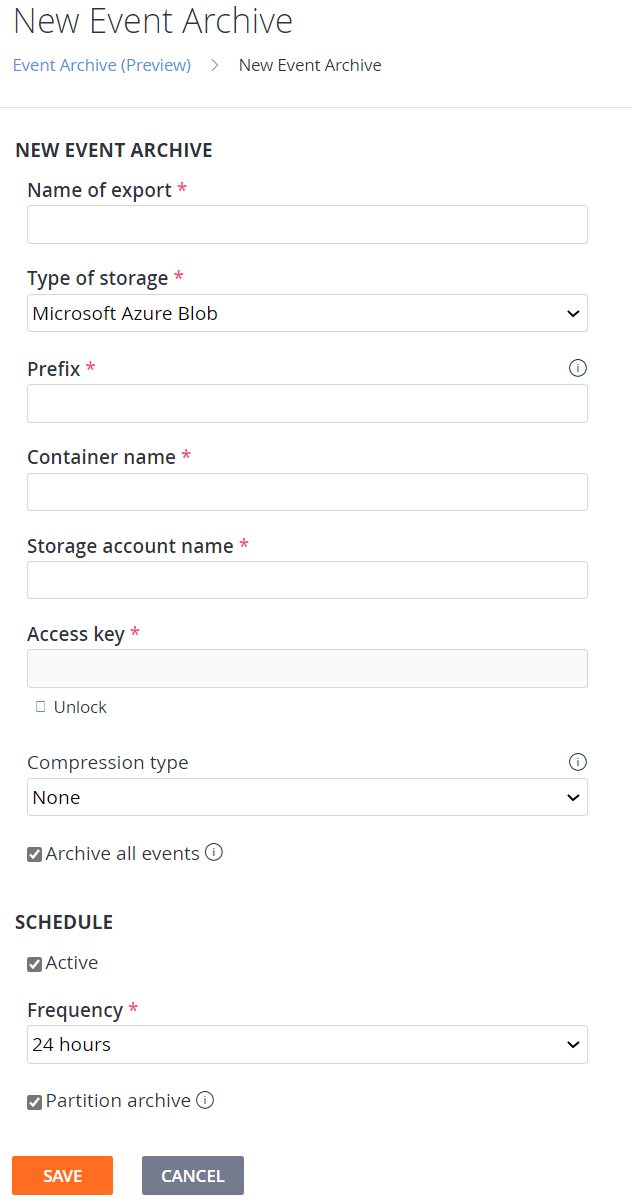Exporting Data
Note
PlayFab Insights Management was deprecated on December 11th, 2023. We recommend using Azure Data Explorer (ADX) Connections to manage your performance and cost going forward. If your title is still using Event Export, continue to see this article for implementation details. For more information, see Insights Deprecation Blog.
Event Export is the primary mechanism for exporting data from your Insights data cluster without querying. Event Export can be reached under the data section of PlayFab Game Manager. The number of distinct export commands you can run is tied to your performance level.

To create a new export:
- Navigate to the Event Export page.
- Select "New Event Export".
- Fill out the required fields with your external storage account information.
- There are several options for which data to export to choose from
- You may select the checkbox for all events, this option exports all data.
- You may select one or more tables to export
- You may select to use a custom query to define the output of the export. NOTE Using a custom query for exporting all data results in a slight addition of columns from the ETL process. NOTE When using custom query, the output must have a timestamp column named timestamp.
- You can choose between once an hour and once a day for export frequency
- You can choose to have your data partitioned into individual files for more efficient storage and loading
Use Cases
- Export all data to be ingested into a separate data system. Exporting all data allows for an efficient way to create files to save for cold storage or for ingestion into another data processing system. While this use case is functional, it isn't the intended use case for Insights and Export. PlayFab Insights is excellent at data modification and transformation, the second case is recommended over this case.
- Export custom query data. Using a custom query allows you to select custom datasets for export. This is ideal for loading cleaned data models into machine learning systems like Spark and pandas (python), or into other data systems and visualization platforms that provide specialized use cases.
Continuous Export
Continuous data export begins exporting data only from the point of the export's creation.